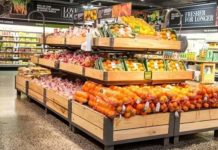Africa-Press – Mozambique. The new cashew law proposes, among other things, that only cashew nuts surplus to the national industry’s annual needs can be exported. It provides for the Council of Ministers to define annually the minimum price of raw cashew to be paid to the producer, with a view to increasing the income of the over 1.4 million families who grow cashews in Mozambique.
The draft law to be submitted to the Assembly of the Republic, aims, among other objectives, to enhance national production and generate more employment opportunities in the industrial sector and in the value chain.
The paradigms for the production, processing and export of cashew nuts have changed profoundly over time. To better monitor this dynamic, the Cashew Law Number 13/99 of 1 November, which has been in force for 22 years, may, by the end of 2021, also undergo some changes.
The export of cashew nuts, after supplying the annual needs of the national industry, may be included in Number 4 of article 10 of the instrument in question.
In the same article, Number 3 stipulates that the industrial processor will be able to export the surplus of raw cashew nuts, this for industrial processing purposes.
In the duties chapter, the proposal provides for a change in paragraph 1 of article 11 of the current law. Thus, the export of raw cashew nuts will be subject to an overvaluation fee of 22% for a period of not less than five years.
This duty fee, therefore, must be paid at the time of boarding, and deferred payment is not allowed.
The export of cashew nuts with skin may be subject, for a period of not less than five years, to an overvaluation fee of 15%, to be paid under the same conditions as in the point above.
Still in the field of taxes, the export of cashew nuts will be subject to an overvaluation rate of 5%.
The proposal suggests that the export of processed cashew nuts be exempt from tax obligations.
According to the Minister of Agriculture and Rural Development, Celso Correia, the revision of the cashew law aims to ensure a sustainable value chain and a fair trading environment.
To these objectives are added those of increasing producer family’s income by improving the quality and productivity of cashew nuts, promoting agricultural research, transferring technology to producers and renovating the national cashew park.
“The commercialisation and export of processed cashew nuts play an important role in that it gives the product relative added value, contributing to an increase in jobs,” Minister Correia highlighted.
The head of the Agriculture Ministry also said that the production of this oilseed species “enables a lasting link between extraction and industrial processing activities, favourable to the sustainable exploitation of natural resources”.
Presented this Wednesday to various actors in the cashew value chain, the proposal for the revision of the cashew law was the subject of both controversy and consensus among industrial producers.
The proposal in question also suggests that a national or a foreign citizen, both individually or collectively, can equally be a cashew exporter, as long as they meet requirements.
The minimum purchase price for raw cashew may be defined by the Council of Ministers in response to a proposal of the Cashew Committee.
By
Precidónio Silvério






